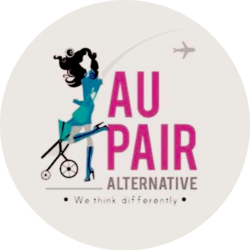12 things you should know before becoming an Au Pair
12 เรื่องที่คุณควรรู้ก่อนเป็นออแพร์
1. Are you literally into children?
Well, let get this straight guys. Not everyone is made for a parent role. Babysitting needs lot of practice, a certain level of patience and knowledge of psychology. Yet, despite the fact, it doesn’t mean that you are not qualified for Au Pair program at all if you are inexperienced. Skills are things we can learn and develop and to so that you just simply register yourself for a childcare training course.
I totally suggest you guys take a childcare training course because the practice wont only give you experience with children but also gets you realize whether you are truly a child lover. You can’t proudly say you love children unless you have actually been able to handle them in all situation without anger. Well, that isn’t easy, to be honest.
I still remember how surprised my family and friends were once they heard I was going to work as a babysitter. For them it was a total nonsense as I was quite a tomboyish kinda girl, plus I had zero experience with children. Even my parents thought I lost my mind and didn’t believe I would be able to do it. But hey, after a 2-month childcare training, I did just fine with childcare, most of all, I discovered myself that in fact I was a child-oriented person.
2. Are you ready (mentally and emotionally)
Unfamiliarity to new culture, ways of life, language, food, weather condition and environment is one of biggest challenges Au Pairs usually face, and if you are unprepared, anxiety, discomfort and fear will develop . Therefore being strong mentally and emotionally is crucial for you all.
The mental readiness/strength enhances your endurance to obstacles while mental weakness results the opposite. It won’t be so fun to live far away from your family and friends, but still have a feeling for help, support and attention from them. It doesn’t work like that since you should aware that 1. They can’t fly to be with you 2. Different time zone possibly makes it hard for communication.
Emotional intelligence helps you understand people and situations well. It promotes skills in adaption together with an ability to find appropriate solution to problems. And most of the time, it keeps you think positively despite difficult situations.
3. Lower your expectation for a host country (better yet don’t expect at all)
Well, we, humans have imagination. Often media illustrates exaggeration or unrealistic images for countries we’ve never been. What I can say guys, don’t believe what you see or hear, even books can lie. No matter how well you think you know about your host country from whatever sources, nothing is like reality. If you wish to get realistic insight of the country and its culture, I suggest you move there long-term (one year is adequate) and try to socialize with locals. Socializing with the local is a channel to experience reality rather than illusion. Locals’ behavior/interaction toward foreigners is the best reflection of the national mindset. You will discover how open they really are through their actions, not from what you have seen on Television. So yeah, don’t expect your host country to be like this or that, otherwise you’ll end up in disappointment. Keep your mind open and accept the country and its culture, the way they are, most importantly, be happy!
4. Do research about your host country
Even though going without expectation is good, but to have general knowledge or basic information about your host country will help you adapt better and easier in that country because you are not clueless about common practices like social value, dos&donts, you will know how to get around by local public transportation, where to eat, or how to entertain yourself. Altogether, you become a likable person among the local and able to enjoy an expat life to the fullest.
5. Make sure you have clearly discussed every single point on employment condition with your host family.
To avoid conflicts, with your host family it’s imperative that you make sure things have been thoroughly discussed. Often conflicts occur by carelessness in detail of work condition and over-excitement after matching process when you become overly joyously with great news and followed by assumption that everything is going be just great. Nope! It won’t, unless you make a clear agreement on your work condition/employment contract. You must discuss every little thing from family’s daily routines to your earning and taxation. Knowing your family’s rules and expectation help you perform your duties effectively with little chance for mistakes. This is clearly advantageous for both Au Pair and a host family in terms of problem prevention.
6. Be communicative with your host family.
When it comes to keeping a smooth relationship with a host family, open communication is very important since chance of misunderstanding is always there (remember you and your host family have different cultural background and mentality expecting your host family to understand certain things or actions you take, is not a good idea ’cause they might interpret differently. My advice is if you become unsure about something or don’t clearly situation, just ask or discuss it openly with them.
7. Learn local language
These days it’s usual to say that a majority of European citizens speak nearly perfect English, yet, learning local language is beneficial in terms of cultural understanding. It’s also a way to show respect and willingness to integrate. I never really understood Swedish culture until I’d read all dialogs and texts in my school textbook. So, yeah, if you wish to get a rather accurate cultural insight of local people, study their language.
8. Be open-minded
One thing you cannot avoid while living abroad is culture shock. I promise you, sooner or later you will experience this. As we all know, Western culture differs from Eastern one so be prepared. Don’t judge anything based on your own culture or value, substitute, accept and respect it. It took me a while to get used to seeing a public display of affection in Denmark, which we don’t do in Thailand or hugging (acquaintance or opposite sex), kissing on the cheek (Dutch etiquette) and etc. I promise you this is awkward and uncomfortable, in the very beginning, of course, but if you are open-minded, after a while, you will become more and more used to it. The practices are becoming normal for you eventually.
9. Be brave
Bravery is so important because without it you end up experiencing nothing new. Cultural Exchange programs give an opportunity for you to learn and experiment new things, then why sit you on your arse at home doing nothing? Go out and explore; attend events or social gatherings, do activities, visit interesting places, attend a language school, travel to new countries. To make all this, you need bravery: bravery to approach strangers, to make conversation with again strangers, to set off a journey, to travel on your own without company, to get lost, to experiment things you have never done. This might sound relatively easy, but not really, for someone who leaves his/her home country for the first time. It’s a real challenge actually.
10. Speak Speak Speak!
If you are on a cultural exchange program for the sake of practicing language, Great! Your chance has come. I’ve been asked by many Au Pair candidates whether they would get an opportunity to improve their English skill living in a non-english spoken country. To be honest, I have never had problem communicating with Europeans in English. All of them I spoke too acquired good knowledge of English. You will be surprised to see a 4-year old, already talk some English. Not to mention 10 or 12 year-olds, their English could be better than Thai adults who holding a master degree. And, in fact, we can improve you language skill in every corner in the world. You can even perfect your English in Thailand if you have 1. Strong determination 2. Diligence 3. Disciplines. These apply to other languages as well. Shortly speaking, if you want to advance you English in Europe, simply make a lot of conversations at home with your family and when hanging out with friends.
11. Always be friendly and approachable
Being friendless is miserable, it’s worst when you are not in your own country. Some countries in Europe have such depressing weather like in Nordic countries where there is a long winter. It’s mostly cold and dark (except: summertime) For Au Pairs from tropical region, this can be miserable, no doubt. Hence my suggestion is despite the bad weather condition, don’t keep yourself inside too much. Keep being active and social at most occasions. Why? Because this the only way to eradicate loneliness and boredom. To make your life fun and eventful, you need to get yourself some friends. Their nationality doesn’t matter, but if you want to gain international experience, finding foreign friends are advisable. And in order to achieve this goal, you should be 1. friendly and 2. Approachable. Being friendly means you have rapport and ready to say hi and begin conversation with new people. Being approachable means, don’t act arrogant. Avoid straight face, instead put on a smiley face. With this technique, I assure you have a big chance to make a brunch of new friends. However, Europeans in general are quite reserved so don’t expect them to approach you first. Show interest on them and after you have broken the ice, you probably make long-standing friends.
** Be aware though that in some countries, approaching people you don’t know might be perceived as abnormal, but hey… you never know, people are different, means you might stumble into someone nice and willing to embrace you into their arms.
12. Law obedience
Take Au Pair regulations very seriously as if you break it, you get in trouble. It is never cool to do something outlawed. Sure, very few Au pairs get caught by taking extra job outside they regular working hours. It doesn’t mean you will be always lucky. Possibility to get checked by police still exists. However, in case, it’s necessary, discuss this with your host family first. Law obedience isn’t a serious business, but an indication whether you are respecting the country and its people.
By Au Pair Alternative

